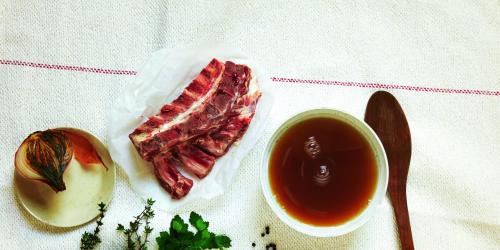Nutritional values of rocket
From the family Cruciferae (such as turnips, cabbages or watercress), the arugula is commonly eaten raw as a salad or in a more original way added to hot preparations like pasta or risottos. With 5 calories for 20 grams, the arugula contains very little protein, carbohydrate or fat. You can also eat the seeds of arugula as a condiment (as well as the seeds of mustard). Studies have established that the rocket has depurative, antifungal and ... aphrodisiac properties.
The arugula: an excellent source of different antioxidants
Like all fruits and vegetables with a pronounced color, the arugula is a concentrate of antioxidants that fight against, among other things, cancer, neurodegenerative and cardiovascular diseases and aging-related diseases. It is composed of 3 main antioxidants: flavonoids are compounds whose main action is to strengthen the resistance of capillaries thanks to their venotonic properties, carotenoids in the form of beta-carotene (up to 3 times more present than in the same amount of lettuce) stored in the liver that help to fight against free radicals and finally glucosinolates recognized for their antibacterial and anticarcinogenic effects. Consuming rocket on a regular basis is therefore a good attitude to adopt to provide the body with a protective barrier against the development of carcinogens.
The trace elements of the rocket
In all its forms, the arugula contains a large amount of vitamins K and B9. The first is essential to the body: even though it is naturally made by the intestine, it is important to look for additional sources in the diet. It contributes to bone formation and blood clotting. The second plays a vital role in the functioning of the nervous and immune systems. Vitamin B9 is also indicated in the healing process. The rocket, consumed in the form of sprouted seeds, contains a greater share of essential mineral salts for various metabolic processes: sulfur for protein binding, sodium to maintain hydration and cell balance, potassium which has a direct effect on the production of hydrochloric acid in the stomach to facilitate digestion, calcium to promote bone reinforcement and phosphorus which participates in the regeneration of tissues. Add young rocket shoots in your menus: the new health reflex to appropriate.
The arugula in the kitchen
If it is very easy to use the arugula as a simple salad, it is possible to divert this plant and decorate over many recipes. Indeed, simply drizzled with a vinaigrette, she satisfies lovers of salad character. On the other hand, it is much less common to use it in preparations such as soups: choose the stiffest arugula leaves (much less digestible to consume raw) and add them at the end of cooking vegetables before grinding. Remember to make an original pesto: pine nuts, parmesan, garlic and olive oil ... Just replace the classic basil with rocket to make a sauce that will ideally accompany pasta. Make a "fall" of arugula: cooked like spinach, the rocket does not suffer from a slight passage in the pan with a knob of butter. In Italy, it is customary to serve pizza with a handful of arugula on it: take the pizza out of the oven and put a salad pom-pom in the center. Avoid adding it at the beginning of cooking: while cooking, the rocket loses its crunchy profit.
From the family Cruciferae (such as turnips, cabbages or watercress), the arugula is commonly eaten raw as a salad or in a more original way added to hot preparations like pasta or risottos. With 5 calories for 20 grams, the arugula contains very little protein, carbohydrate or fat. You can also eat the seeds of arugula as a condiment (as well as the seeds of mustard). Studies have established that the rocket has depurative, antifungal and ... aphrodisiac properties.
The arugula: an excellent source of different antioxidants
Like all fruits and vegetables with a pronounced color, the arugula is a concentrate of antioxidants that fight against, among other things, cancer, neurodegenerative and cardiovascular diseases and aging-related diseases. It is composed of 3 main antioxidants: flavonoids are compounds whose main action is to strengthen the resistance of capillaries thanks to their venotonic properties, carotenoids in the form of beta-carotene (up to 3 times more present than in the same amount of lettuce) stored in the liver that help to fight against free radicals and finally glucosinolates recognized for their antibacterial and anticarcinogenic effects. Consuming rocket on a regular basis is therefore a good attitude to adopt to provide the body with a protective barrier against the development of carcinogens.
The trace elements of the rocket
In all its forms, the arugula contains a large amount of vitamins K and B9. The first is essential to the body: even though it is naturally made by the intestine, it is important to look for additional sources in the diet. It contributes to bone formation and blood clotting. The second plays a vital role in the functioning of the nervous and immune systems. Vitamin B9 is also indicated in the healing process. The rocket, consumed in the form of sprouted seeds, contains a greater share of essential mineral salts for various metabolic processes: sulfur for protein binding, sodium to maintain hydration and cell balance, potassium which has a direct effect on the production of hydrochloric acid in the stomach to facilitate digestion, calcium to promote bone reinforcement and phosphorus which participates in the regeneration of tissues. Add young rocket shoots in your menus: the new health reflex to appropriate.
The arugula in the kitchen
If it is very easy to use the arugula as a simple salad, it is possible to divert this plant and decorate over many recipes. Indeed, simply drizzled with a vinaigrette, she satisfies lovers of salad character. On the other hand, it is much less common to use it in preparations such as soups: choose the stiffest arugula leaves (much less digestible to consume raw) and add them at the end of cooking vegetables before grinding. Remember to make an original pesto: pine nuts, parmesan, garlic and olive oil ... Just replace the classic basil with rocket to make a sauce that will ideally accompany pasta. Make a "fall" of arugula: cooked like spinach, the rocket does not suffer from a slight passage in the pan with a knob of butter. In Italy, it is customary to serve pizza with a handful of arugula on it: take the pizza out of the oven and put a salad pom-pom in the center. Avoid adding it at the beginning of cooking: while cooking, the rocket loses its crunchy profit.


